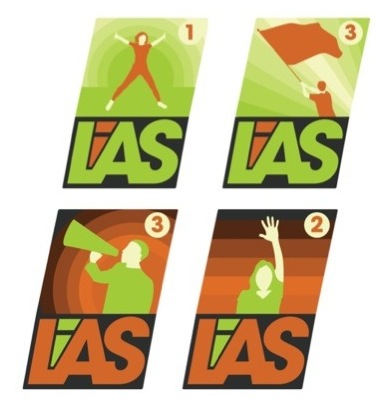By Sam Piha
 |
| Sam Piha |
 |
| Dale Dougherty |
"2. While STEM will continue to be a focus for
the afterschool field, I predict 2014 will be a year when we go deeper on STEM
instructional training for the afterschool workforce." - The LIAS project promoted five important
learning principles that STEM programs should draw upon to ensure that they
truly engage young people.
"3. Until recently, it's often been difficult
to get recognition for skills and achievements gained outside of school.
Digital badges provide a way for young people to get recognition for the skills
and experiences they gain in afterschool programs. Potential employers,
community members, and even college admissions staff can go to a student's
online profile to see their portfolio of badges—linked to the work and projects
done to achieve the badges—to get a holistic understanding of the student that
goes beyond the classroom and beyond grades." - LIAS and Temescal Associates, in partnership with
Public Profit and Youtopia, launched a major badging effort with afterschool
groups across California. Badges will be awarded to exemplar programs, staff
who receive certain professional development training, and youth who
participate in and gain skills through their afterschool programs. We have been
a leader in this area and will share more information soon.
 |
| Joseph Durlak |
Dr. Jeff Borden, Vice
President of Academic Strategy & Instruction in Pearson's Research and
Innovation Network, published a similar article in eSchool News entitled Are these 8 trends the future of K-12?.
Below, we quote from this article and share the work of LIAS and Temescal
Associates.
 |
| Judy Willis |
 "8. Constructivism Will Flourish: Along with
neuroscience and learning design above, more and more 'movements' have emerged
out of and around constructivist teaching and learning. From the veteran
project-based learning to up-and-comers like the Maker Movement, flipped
learning, challenge-based learning, entrepreneurial linked education, etc.,
people are realizing that the old apprenticeship model is again possible, at
scale, thanks to technology. Learning by creating is fostering connections
between the learner and real products, services, or ideas and is, to many, a
fundamental 'missing link' with most education today." - The LIAS project promoted these ideas in our
project position statement and through our training offerings and speakers
featured at our How Kids Learn I, II, and III conferences.
"8. Constructivism Will Flourish: Along with
neuroscience and learning design above, more and more 'movements' have emerged
out of and around constructivist teaching and learning. From the veteran
project-based learning to up-and-comers like the Maker Movement, flipped
learning, challenge-based learning, entrepreneurial linked education, etc.,
people are realizing that the old apprenticeship model is again possible, at
scale, thanks to technology. Learning by creating is fostering connections
between the learner and real products, services, or ideas and is, to many, a
fundamental 'missing link' with most education today." - The LIAS project promoted these ideas in our
project position statement and through our training offerings and speakers
featured at our How Kids Learn I, II, and III conferences. 




No comments:
Post a Comment